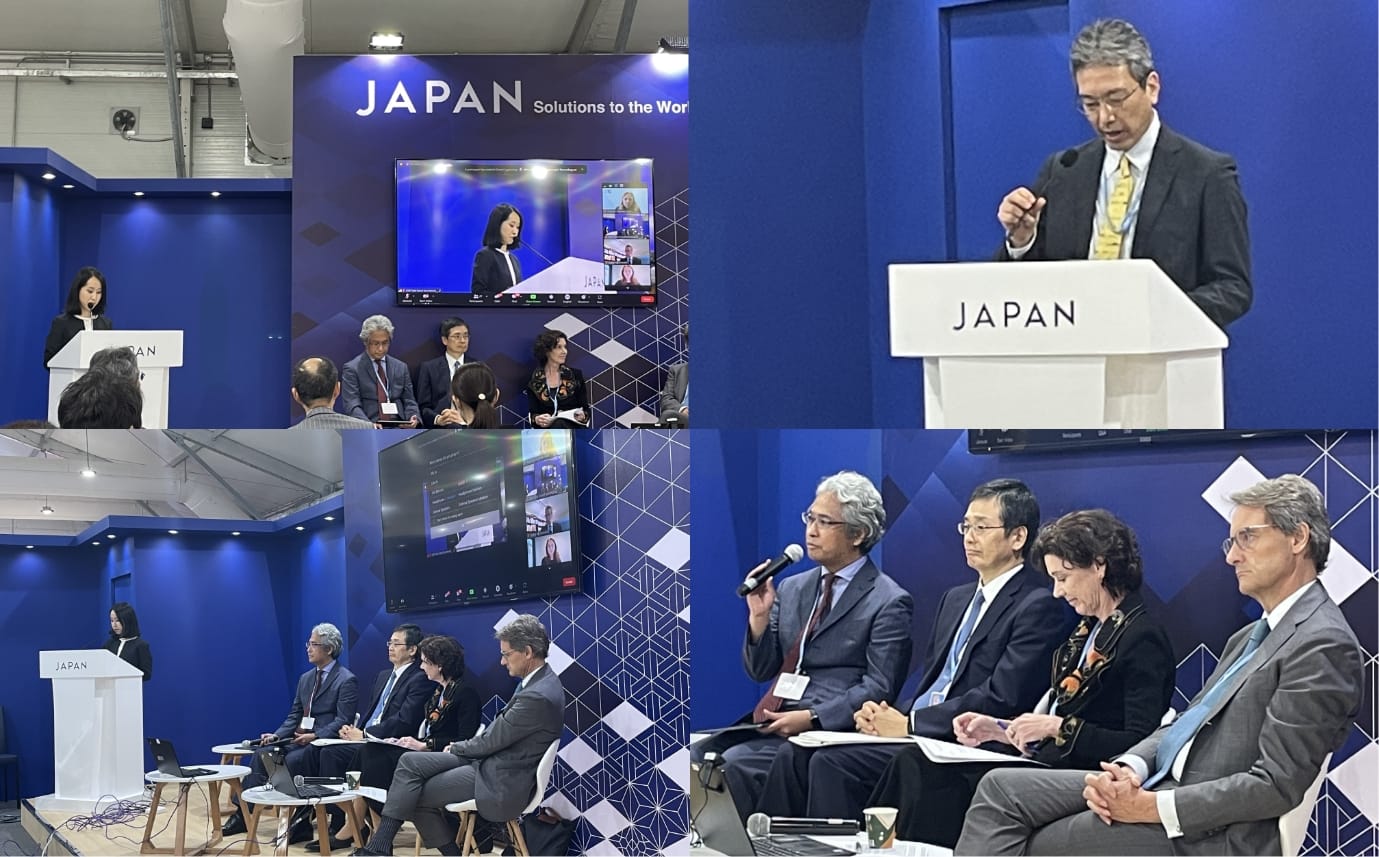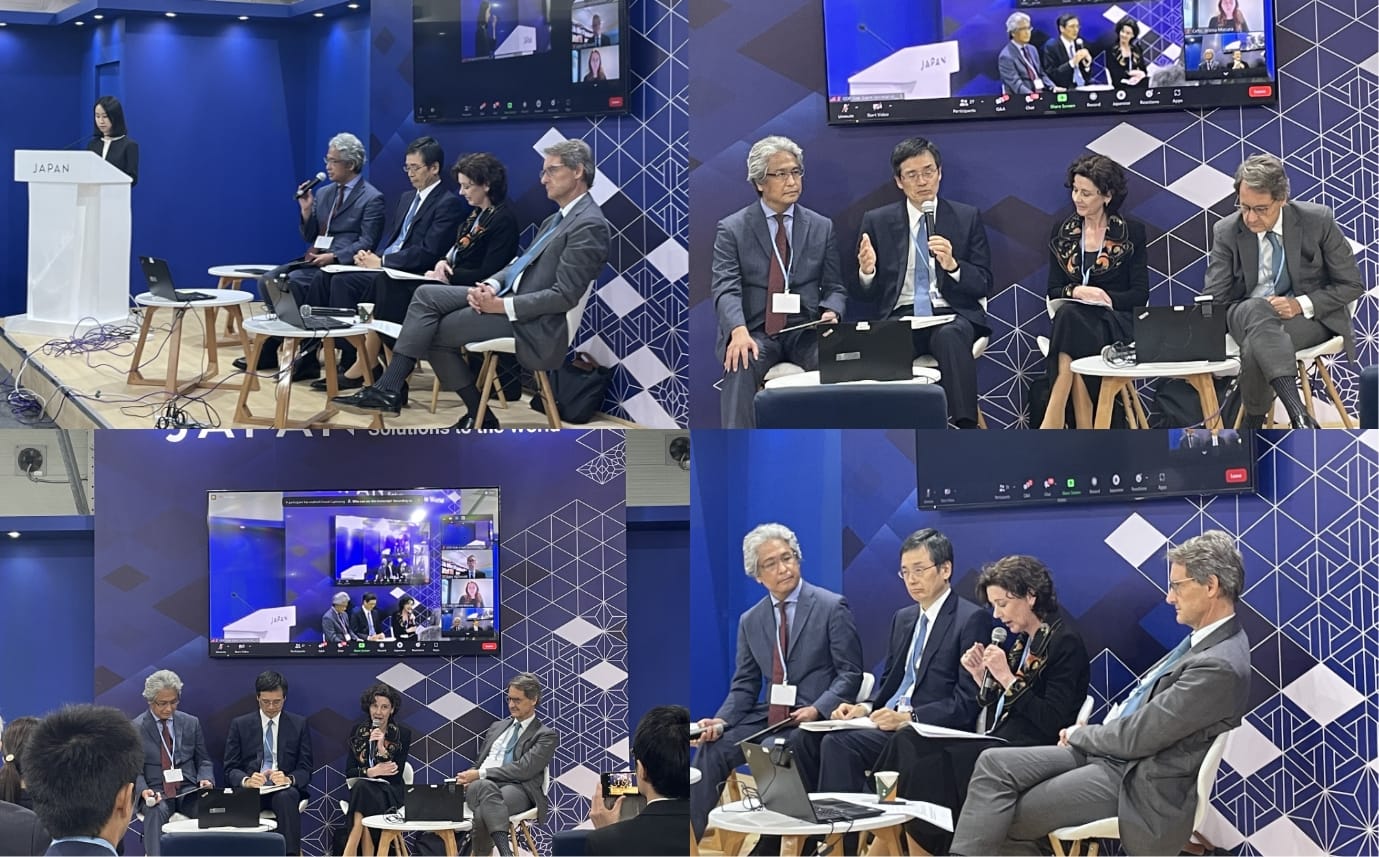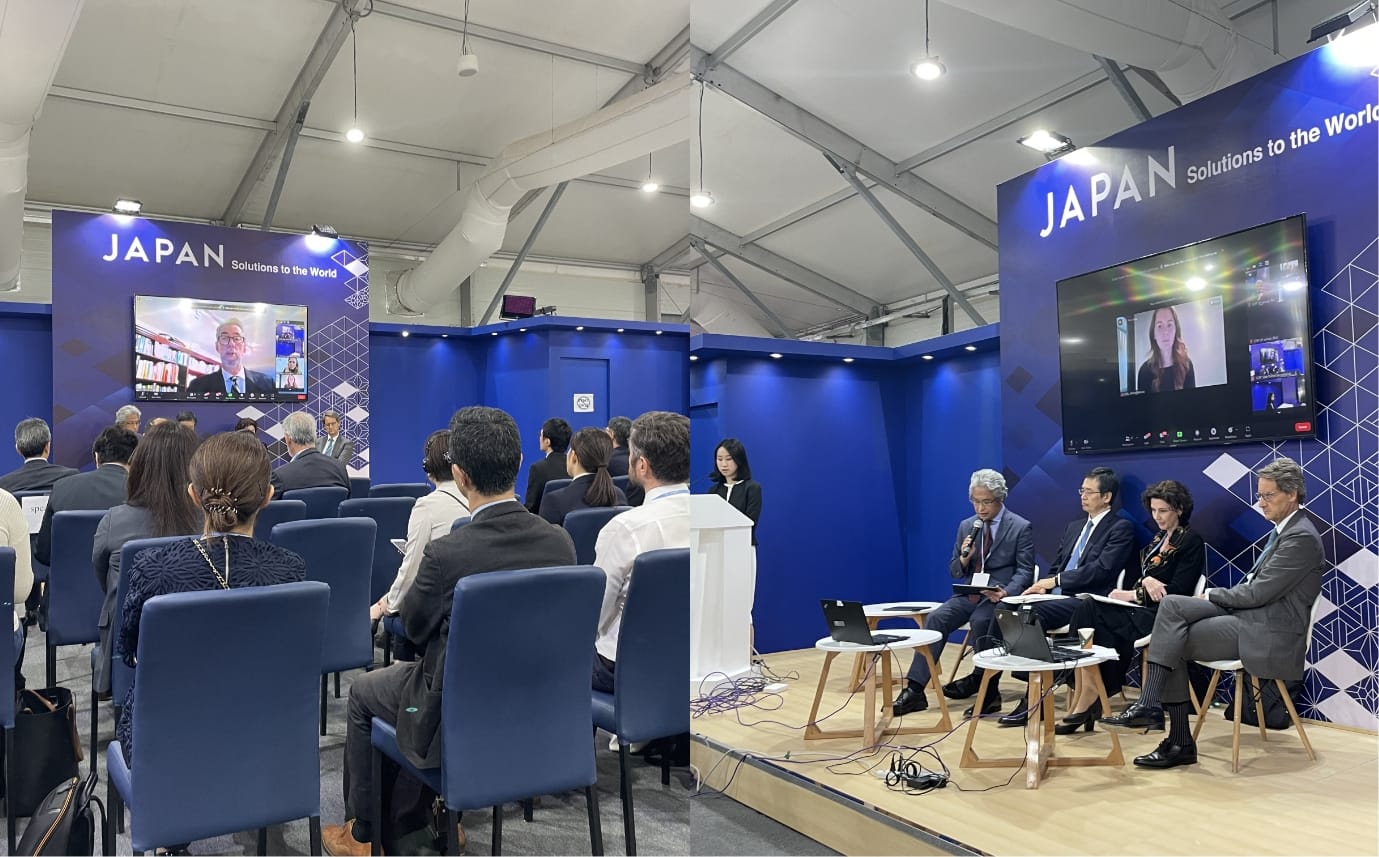2022.11.8 TUE
- 17:00 - 18:30
- How can sustainable and transition finance support the journey to net zero in Asia?
- Organizer
- Organizer: Ministry of the Environment, Japan
OECD
This seminar is supported by IGES
- Seminar abstract
- In order to meet the goals of the Paris Agreement, efforts to tackle climate change are underway throughout the world.
Asia is a key region when it comes to achieving net zero globally. Asia accounts for half of the world’s GHG emissions, and approximately 85% of the energy consumption there is from fossil fuels, which is projected to double in 2030.
Therefore, it is salient, especially in Asia, to develop transition finance approaches and practices.
This event, organised jointly by the OECD and the Ministry of Environment of Japan, will address key practices for and challenges to scaling up transition finance in Asia. Given the need to scale up finance for the climate transition across all sectors globally, an increasing number of initiatives have set out transition finance approaches. These include Japan's Basic Guidelines on Climate Transition Finance, as well as Singapore’s and ASEAN transition taxonomies, among others.
To provide a bridge across a range of transition finance and transition plan initiatives and frameworks, and to increase transparency and help avoid greenwashing, the OECD Guidance on Transition Finance presents elements of credible corporate climate transition plans based on analysis, an industry survey and good practices to date.
This event will spur action-oriented discussions and knowledge exchange on the latest initiatives and developments in the transition finance space in Asia and will identify priority areas to accelerate progress in the region.
This event will take place live from Sharm El-Sheik and will be livestreamed here on the OECD COP27 Virtual Pavilion.
Click here to watch the video: https://www.oecd-events.org/cop27/session/35a07c45-c04f-ed11-819a-000d3a45c4a7
- Speakers
- 【Local Speakers】
- Christian Déséglise(HSBC) Managing Director, Group Head of Sustainable Infrastructure and Innovation
- Jo Tyndall(OECD) Director, Environment Directorate
- Hiroshi Ono(Ministry of the Environment, Japan) Vice-Minister for Global Environmental Affairs
- Saya Mizuno(Ministry of the Environment, Japan) Deputy Director for Green Finance
- Paulina Dejmek-Hack(European Commission) Director for General Affairs, DG FISMA
- Seiji Inagaki(Dai-ichi Life Holdings, Inc) President
- Satoshi Ikeda(Financial Services Agency, Government of Japan) Chief Sustainable Finance Officer
【Online Speakers】- Larry McDonald(United States Department of the Treasury) Deputy Assistant Secretary
- Jelena Macura(European Chemical Industry Council) Head of Sustainable Finance
- Paulina Dejmek-Hack(European Commission) Director for General Affairs, DG FISMA
- Session Summary
-
In his opening remarks, ONO Hiroshi, Vice-Minister for Global Environmental Affairs, Ministry of the Environment, Japan, stressed the importance of transition finance in achieving the goals of the Paris Agreement, and introduced Japan’s transition finance policies, including the “Basic Guidelines on Climate Transition Finance”.
IKEDA Satoshi, Chief Sustainable Finance Officer, Financial Services Agency, Japan pointed out that Asia is the fastest growing economic region, and at the same time, is heavily dependent on fossil fuels. He added that maintaining economic growth and energy transition are major challenges that need to be overcome.
During the panel discussion, each speaker explained the following efforts in transition finance.
- ・EU promotion of transitions through various sustainable finance policies such as the EU Taxonomy, sustainability information disclosure, green products, etc.
- ・Outreach conducted by Janet Yellen, U.S Secretary of the Treasury, targeting multilateral development banks (MDBs) on issues such as increasing climate change ambition.
- ・Development of a Framework for Transition Finance by the G20 Sustainable Finance Working Group. The Framework addresses five pillars: identification of transitional activities and investments, reporting of information on transition activities and investments, developing transition-related finance instruments, designing policy measures, and assessing and mitigating negative social and economic impact of transition activities and investments.
- ・Publication of the OECD Guidance on Transition Finance, which presents the elements of credible corporate transition plans.
- ・The European Chemical Industry Council (Cefic)’s support for the EU ambition to become climate-neutral by 2050 and its participation in the European Commission (EC)-led process to develop a Transition Pathway for the chemical industry which is aimed at accelerating industry towards European Green Deal goals.
- ・The appointment of Seiji Inagaki, a President of the Dai-ichi Life Insurance as a member of GFANZ Principal Group, and its commitment to achieve zero finance emissions, including Scope 3, by 2050.
- ・HSBC’s setting of green and transition finance targets (USD1 trillion by 2030) and investment in new technologies to promote innovation, and the development of a label for sustainable infrastructure assets.
- ・Joint Statement of the Just Energy Transition Partnership (JETP) with Indonesia to support Indonesia’s efforts to transition from coal to renewable energy, with participation from Japan, the U.S., the EU, etc. HSBC and other GFANZ members are expected to invest in the project under the JETP.
The panel discussion pointed out the importance of transition finance itself at the Asian and global levels, as well as the need for credibility, transparency, and accountability.In the chemical industry, it was discussed that there is a need for further promotion of technological innovation, recycling, etc., as well as the substantial CapEx and OpEx investments associated with retrofitting and innovation. As for the market as a whole, challenges were pointed out such as enhanced information disclosure by companies, data comparability, small market size of transition finance, and enhancement of blended finance. It was also stated that JETP will accelerate the early retirement of coal-fired power plants in Indonesia, and expressed the hope that the JETP model will be expanded to other regions.
The moderator concluded the session by pointing out the importance of the transition finance framework in each country, expansion of transition finance, public-private partnerships, and expansion of funds for new technologies and R&D fields.
A recording of the seminar can be watched here(English).
https://www.oecd-events.org/cop27/session/35a07c45-c04f-ed11-819a-000d3a45c4a7


Other timetable
2022.11.8 TUE
- 10:30 - 12:00
-
Promoting and expanding implementation of the JCM
Organizer: Ministry of the Environment Government of Japan
Co-organizer: Overseas Environmental Cooperation Center, Japan
- 13:00 - 14:30
-
Current status and future perspectives on greenhouse gas emission mitigation and impacts
Organizer: Japan Agency for Marine-Earth Science and Technology (JAMSTEC)
Co-organizer: NIES
NASA/JPL
CSIRO
AIT
- 15:00 - 16:30
-
Aiming for Environmental Friendly and Carbon Neutral System of Desalination and Water Treatment
Tokai National Higher Education and Research System Gifu University
- 19:00 - 20:30
-
STS forum COP 27 Special Symposium on Regional Action on Climate Change
Science and Technology in Society forum (STS forum)
